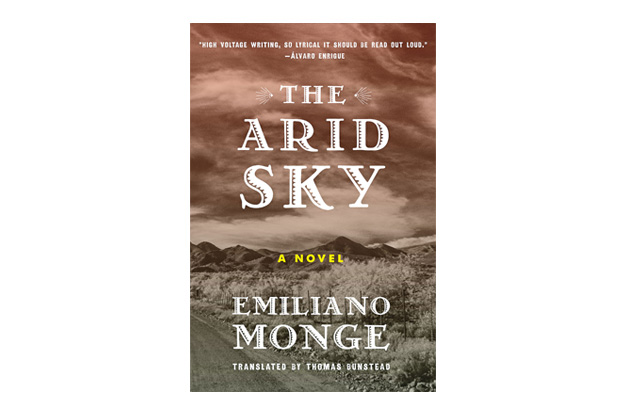This article is adapted from AQ’s print issue on how to make Latin American cities better
”This is the story of a man who, though he did not know it, was the era in which he lived.”
Thus begins Mexican novelist Emiliano Monge’s The Arid Sky, a tale that aims to reveal as much about a place and time — northern Mexico over the course of the 20th century — as it does about its protagonist, a rugged character named Germán Alcántara Carnero.
Monge’s novel airdrops readers into various stripped-down, desperate moments in Alcántara’s life. We witness his last day on the job at a small-town city hall, the death of his sister and sickly son, his birth, his first encounter with his wife, the birth of his child, several murders witnessed or committed, tortures, a burning church. Monge presents these events in no apparent order, although each one deepens the significance of those before it.
Only the book’s ending fits in chronological order: the end of the life in question, on the edge of — if not redemption — at least epiphany. By this point, Alcántara is a shut-in, living in the house where his wife and son have died, reliving all the memories un- spooled throughout the book, full of regret. Here, the atemporal nature of the rest of the novel begins to coalesce into deeper questions about memory, regret and violence.
Monge’s prose brings beauty to an otherwise relentlessly dark tale. Translator Thomas Bunstead has done well to preserve the meandering, clause-packed arcs of the original Spanish for an effect that imitates the wandering plot of the novel itself. The circularity of many scenes, and the language used to describe them, provide a sense of déjà vu that both grounds and disorients the reader.
ButThe Arid Sky does not fully live up to its promise. The author’s presence as a character — or rather, as a storyteller — becomes more pronounced as the novel progresses. Monge-as-character makes all kinds of little interventions — renaming characters (“ourman,” “womanwhoholds,” “manwhoregrets,”) or breaking the fourth wall “because (he’s) determined to create an imaginary life while (his) own life unravels.” Monge’s interruptions are slick, but don’t give the story a larger structure to rely on, retaining the flash of gimmick without the truer gleam of substance.
In addition, the claims that Monge lays out in his opening lines — that Alcántara is a man who embodies his era, and that his life presages the violence and desolation that is to come in Mexico in the decades ahead — is hardly substantiated throughout the rest of the work. Monge alludes to wider questions, deeper existential doubts — a break with organized faith notable among them — that are simply skimmed over and never quite explored. Germán Alcántara Carnero, the arid sky, and the mesa beneath them are simply too isolated and hermetic to suggest greater implications, or a deeper understanding of the cycles of violence that rock Mexico today.
—
Oliva is a writer based in Boston





